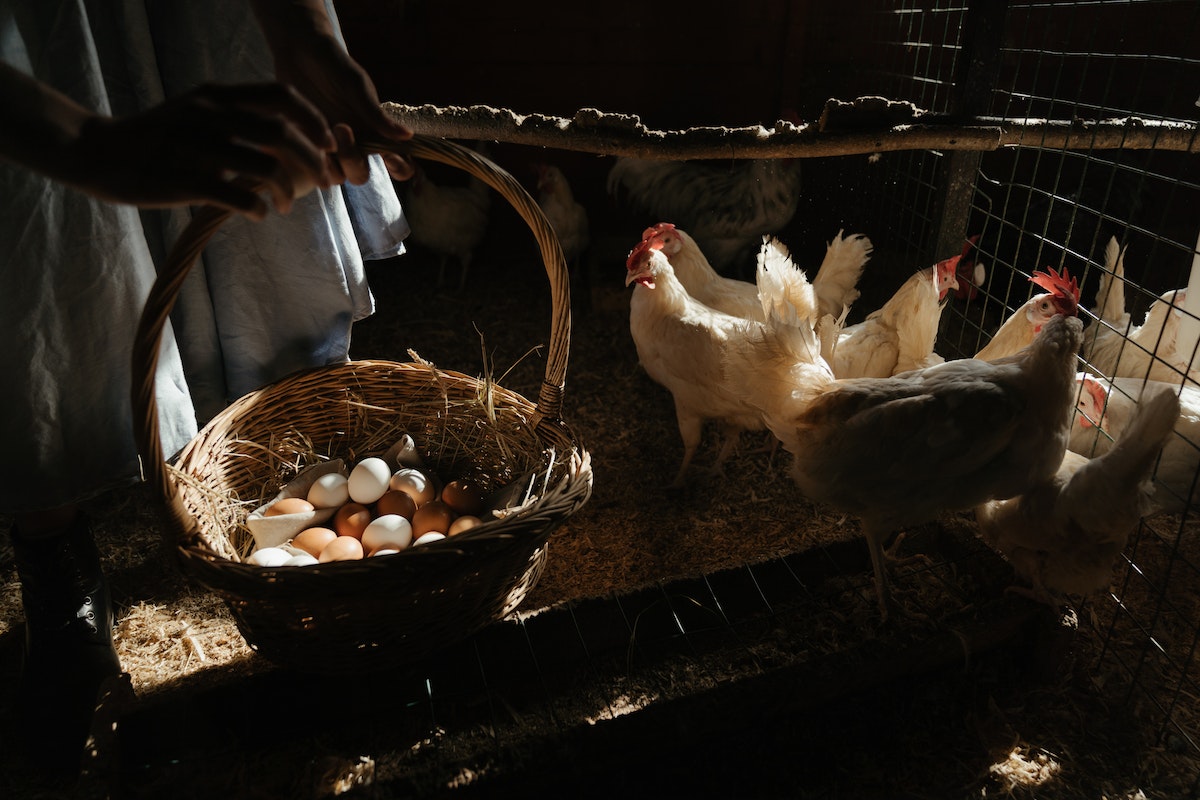Owning backyard chickens can be a deeply enriching experience, combining the joys of companionship, sustainability, and a deeper connection with our food sources. As more people seek a more self-sufficient and sustainable lifestyle, the allure of having a backyard flock has gained significant popularity. My chicken coop is not just a structure; it’s a gateway to a more holistic and fulfilling way of living. In this comprehensive article, we will delve into the myriad reasons why feathered companions can bring immense happiness and sustainability to your life.

The Joys of Keeping Backyard Chickens
Where Happiness Takes Flight
Having a flock of chickens in your backyard can be a source of immense joy. Chickens have distinct personalities, and their playful antics, clucks, and soft coos can bring a smile to anyone’s face. Whether it’s watching them scratch the ground, flap their wings in delight, or simply roosting together, there’s an undeniable charm in observing these feathered creatures.
Chickens are also surprisingly social and can form strong bonds with their human caregivers. They enjoy companionship and often appreciate a friendly chat or a gentle pat. This interaction can be not only enjoyable but also therapeutic, providing a sense of relaxation and calmness after a long day.
Sustainability in Your Backyard
A Sustainable Hub
One of the fundamental appeals of raising chickens is the sustainability it brings to your household. Chickens are incredible little ecological systems in themselves. They convert kitchen scraps and leftover food into nutrient-rich compost through their droppings. This compost, in turn, can be used to fertilize your garden, promoting healthy plant growth and reducing waste.
Moreover, the eggs your chickens lay are a sustainable source of protein for your family. You know exactly where your food comes from, and you can ensure that your chickens are raised ethically and fed a proper diet. By reducing your reliance on store-bought eggs, you contribute to a more sustainable food cycle.
Educational Value for Children
A Classroom of Life
For families with children, having a backyard flock can be an invaluable educational experience. It teaches children about responsibility, empathy, and the circle of life. Caring for chickens involves feeding, watering, and ensuring their living environment is clean and safe. Children learn to be accountable for their well-being and understand the importance of consistent care.
Moreover, observing the chickens’ behavior, egg-laying process, and even witnessing chicks hatch from eggs can be a fascinating and educational journey for kids. It connects them with the natural world and provides them with practical knowledge about biology, animal behavior, and basic farming principles.
Health Benefits of Fresh Eggs
The Cradle of Nutrient-rich Eggs
There’s a notable difference between store-bought eggs and the ones your backyard chickens provide. Fresh eggs from backyard chickens are significantly more nutritious. They are higher in omega-3 fatty acids, vitamins, and minerals. The yolks are often more vibrant, indicating higher nutrient content.
Consuming fresh eggs can contribute to a healthier diet for you and your family. These eggs are free from harmful additives or preservatives that might be present in commercial eggs. Knowing that your eggs come from happy and healthy chickens also adds to the peace of mind and satisfaction of your meals.
The Therapeutic Effect
Nature’s Stress Reliever
Interacting with chickens and spending time in the backyard, whether it’s gathering eggs or simply sitting and watching the chickens, can be incredibly therapeutic. The serene environment of your backyard, combined with the gentle clucking of chickens, has a calming effect, reducing stress levels and promoting mental well-being.
Research has shown that spending time with animals, even in the form of simple interaction, can release oxytocin, a hormone that promotes bonding and reduces stress. Chickens, with their gentle and friendly nature, can become effective stress-busters and mood enhancers.
Contributing to a Circular Economy
Closing the Food Loop
Owning a chicken coop is a step towards a circular economy. Your kitchen scraps become chicken feed, and the chickens, in turn, produce eggs and manure. The eggs nourish your family, and the manure enriches your garden soil, yielding fresh produce. It’s a cycle where waste is minimized, and resources are optimally utilized, contributing to a more sustainable and eco-friendly lifestyle.
Conclusion
Embracing backyard chickens in your life is more than just a hobby—it’s a lifestyle choice that brings happiness, sustainability, and a deeper understanding of our relationship with nature. From the cheerful clucks of the hens to the fresh eggs in your morning breakfast, the benefits of having a backyard flock are truly immeasurable. So, consider setting up your own My Chicken Coop and embark on this feathery journey of joy and sustainability.
Frequently Asked Questions
How Much Space Do I Need for a Backyard Chicken Coop
The space you need for a backyard chicken coop largely depends on the number of chickens you intend to keep and the breed. As a general rule, each chicken should have at least 3-4 square feet of coop space and 8-10 square feet of outdoor space. However, providing more space is always beneficial for the chickens’ well-being and happiness.
What Should I Feed My Backyard Chickens?
A balanced diet for backyard chickens typically consists of commercial chicken feed, grains, seeds, vegetables, fruits, and access to clean water. Ensure the feed is appropriate for the chicken’s age and purpose (laying or growing). Offering a variety of food ensures they receive all the necessary nutrients for good health and egg production.
How Do I Maintain a Clean Chicken Coop?
Regular maintenance is crucial for a healthy coop. Clean the coop at least once a week, removing soiled bedding, droppings, and leftover food. Replace bedding as needed to maintain a dry and odor-free environment. Additionally, conduct a deep clean a few times a year, sanitizing and disinfecting the coop thoroughly.